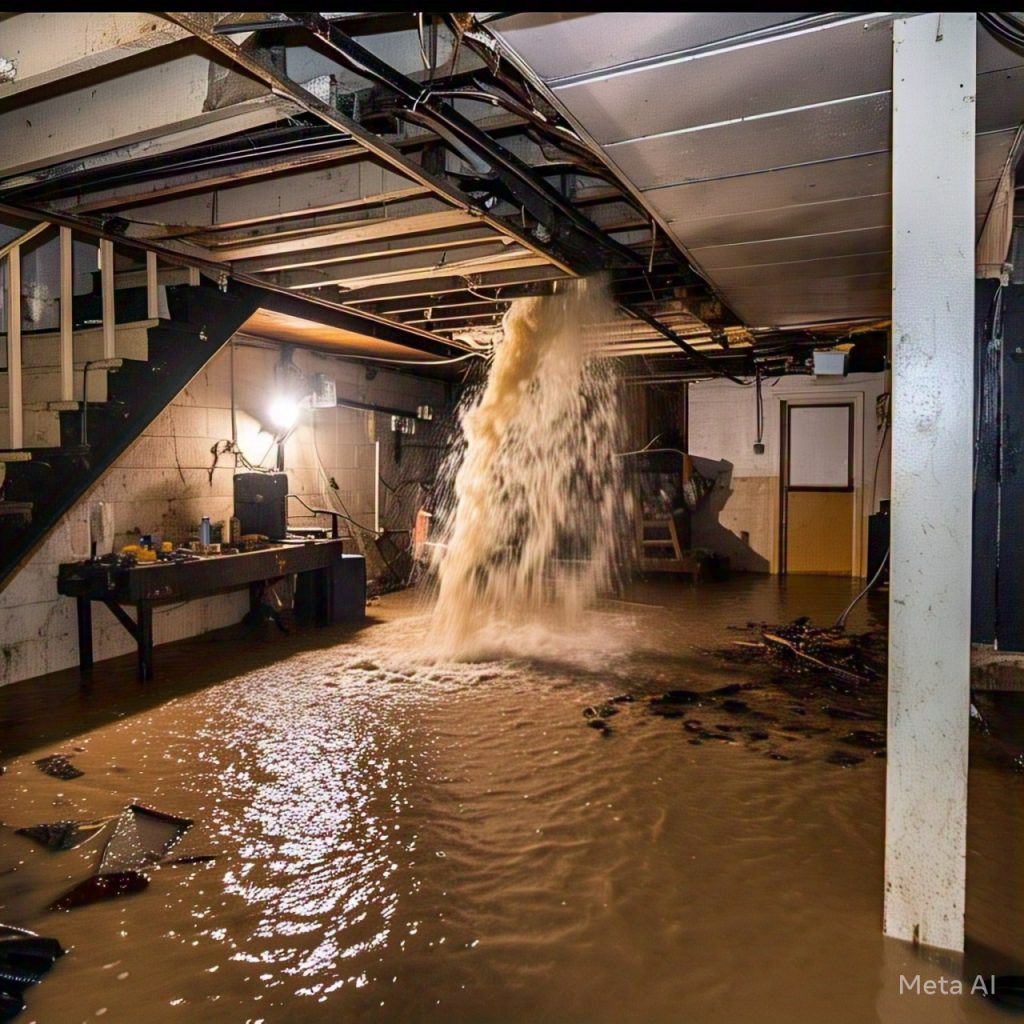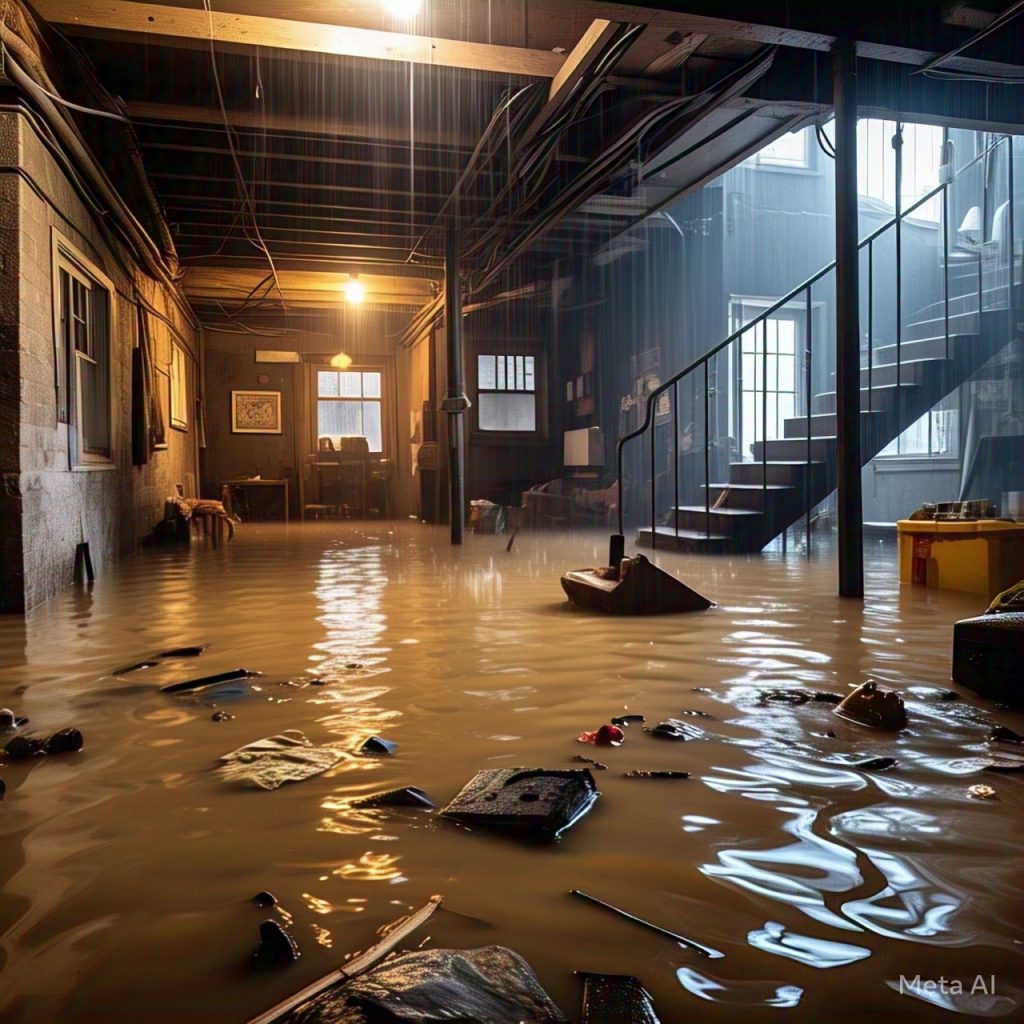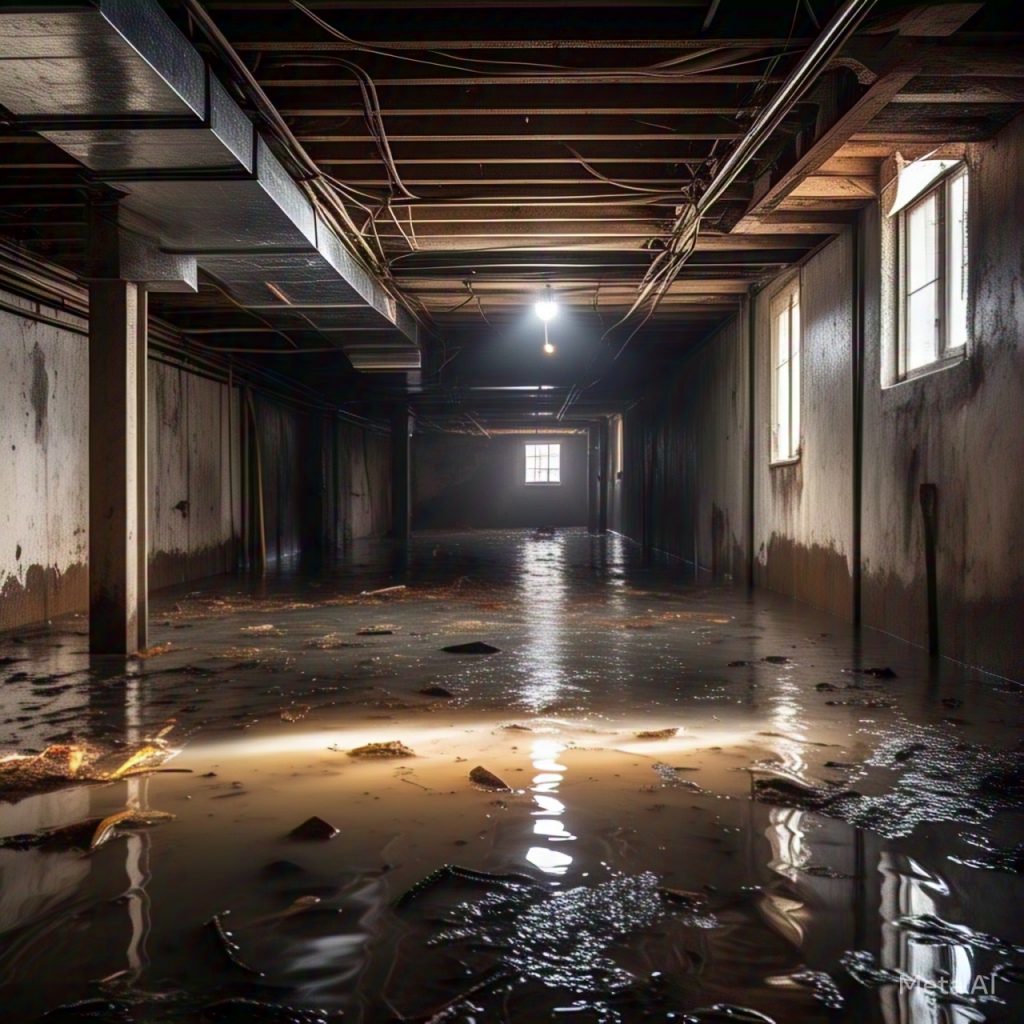Introduction
Flooded basement after a heavy rain? Is your basement constantly taking on water after a heavy rain? Are you searching for help with a flooded basement and wondering what steps to take next? For immediate assistance with flooded basement and water damage restoration in fort wayne, contact PuroClean Disaster Restoration, Call (+1) 260-263-9788 for Fort Wayne location.

Whether it’s a sudden flooded basement emergency, sewage backup, or water in the basement after rain, this guide is built to help you. Basement flooding is a serious issue that can lead to structural damage, mold growth, and costly repairs. Acting fast is crucial to minimize damage and protect your home.
This all-in-one guide will walk you through:
- What causes basement flooding
- How to clean and remove water from your basement
- Professional restoration and repair tips
- What to expect from flooded basement cleanup companies
- And more!
Why Basements Flood
Understanding the common causes of basement floods helps you respond quickly and prevent future damage:
- Heavy Rain and Poor Drainage: Overflowing gutters, downspouts draining too close to the house, and poorly graded soil can all push water into the basement.
- Cracks in Foundation Walls or Floors: Even minor cracks can let in significant amounts of groundwater.
- Sump Pump Failure: A failed or overwhelmed sump pump is a top reason for emergency basement flooding.
- Sewage Backup: If the sewer system gets overloaded, it can back up into your home—posing serious health risks.
- Burst or Leaking Pipes: Especially in cold climates, frozen and burst pipes often lead to basement flooding.

Immediate Steps After a Basement Flood
1. Stay Safe
- Turn off electricity in affected areas.
- Avoid contact with flood water, especially if it contains sewage.
- Wear gloves, boots, and a mask.
2. Stop the Source of Water
Identify where the water is coming from. If it’s a plumbing issue, shut off your water supply. If it’s rain-related, check your drainage systems and sump pump.
3. Contact Emergency Basement Flooding Services
If your basement is more than a couple of inches deep in water, call flooded basement cleanup companies near you or basement restoration experts immediately.
4. Begin Basement Water Removal
- Use a wet/dry vacuum for small floods.
- Submersible pumps are ideal for standing water over a few inches deep.
- Open windows and use fans or a dehumidifier to dry the space.
Cleaning Up After a Basement Flood
After removing water, it’s time for flood cleanup and damage control:
1. Remove Wet Materials
- Pull up wet carpet and underpadding.
- Throw out porous materials like soaked cardboard, drywall, and insulation.
- Salvage items only if they’re not contaminated by sewage.
2. Clean and Disinfect
- Use a bleach solution or professional-grade disinfectant for floors, walls, and non-porous surfaces.
- For sewage cleanup in the basement, call licensed professionals—don’t attempt DIY cleaning due to biohazards.
3. Dry Everything Thoroughly
- Mold can begin growing in 24-48 hours. Dehumidify the area and keep air circulating.
- Moisture meters help detect water trapped behind walls or under flooring.
Repairing and Restoring Your Basement
Basement flooding repair may involve:
- Foundation crack sealing
- Replacing drywall and insulation
- Installing or upgrading sump pumps
- Fixing or rerouting drainage
- Waterproofing basement walls and floors
Companies that specialize in basement water damage repair near you can assess the extent of damage and offer full restoration services.
Basement Flooding Services: What to Expect
When you hire flooded basement cleaning services, you can expect:
- 24/7 emergency response
- Water extraction using professional-grade equipment
- Moisture mapping and damage assessment
- Mold prevention and remediation
- Full basement restoration, including repairs
Average flooded basement cleanup cost ranges from $1,500 to $5,000, depending on:
- Water source (clean, grey, or sewage)
- Severity and depth
- Required repairs or mold removal
Preventing Future Basement Flooding
Don’t let it happen again. Here’s how to protect your home:
- Install a backup battery-powered sump pump
- Add a French drain or exterior waterproofing membrane
- Extend downspouts at least 6 feet away from the home
- Seal cracks in the foundation
- Keep gutters clean and maintained
- Use flood sensors and smart water alarms

Common questions on Flooded Basement
- “What should I do if my basement floods?”
- “How much does flooded basement cleanup cost?”
- “Is water in my basement dangerous?”
- “Find emergency basement flooding help near me”
FAQs: Flooded Basement Cleanup and Restoration (500 Words)
1. What should I do first if my basement floods?
Turn off the power if safe, stay out of standing water, and contact a flooded basement emergency service. Then, begin water removal and drying to prevent further damage.
2. How do I remove water from my basement?
Use a wet/dry vacuum for minor water. For deep flooding, a submersible pump is more effective. Don’t forget to dry the area with fans or a dehumidifier afterward.
3. Is water in the basement after rain normal?
It’s not normal and usually points to poor drainage, foundation issues, or faulty sump pumps. Repeated water intrusion should be investigated and repaired to avoid long-term damage.
4. Can I clean a flooded basement myself?
You can if it’s clean water and a minor flood. For anything involving sewage or more than a few inches of water, it’s safer to call basement water cleanup professionals.
5. How long does it take to dry out a flooded basement?
Drying can take anywhere from 48 hours to several days, depending on the extent of flooding, airflow, and equipment used.
6. How much does basement water removal cost?
On average, it ranges from $1,500 to $5,000. Sewage cleanup and structural damage can raise the price significantly.
7. Will insurance cover basement flooding?
It depends on the cause. Standard homeowners’ insurance usually doesn’t cover flood damage unless you have a separate flood policy. Check your coverage and document damage.
8. Why does my basement flood every time it rains?
You may have poor exterior drainage, a broken sump pump, or unsealed foundation cracks. These issues need inspection and repair to stop recurring flooding.
9. Is wet carpet in the basement salvageable?
Only if dried quickly (within 24 hours) and not contaminated. Otherwise, it can grow mold and should be replaced.
10. Who do I call for help with a flooded basement near me?
Search for “basement flood clean up service near me” or “emergency basement flooding help.” Look for licensed, insured restoration companies with 24/7 support.
Conclusion
Basement flooding is more than just an inconvenience—it’s a serious threat to your home’s structure, air quality, and safety. Whether it’s from heavy rain, a burst pipe, or a sewage backup, acting fast is the best way to minimize damage and costs.
Don’t wait. Call local water damage experts, invest in prevention, and make your basement safer and drier for good.


 PuroClean Disaster Restoration of West Fort Wayne
PuroClean Disaster Restoration of West Fort Wayne